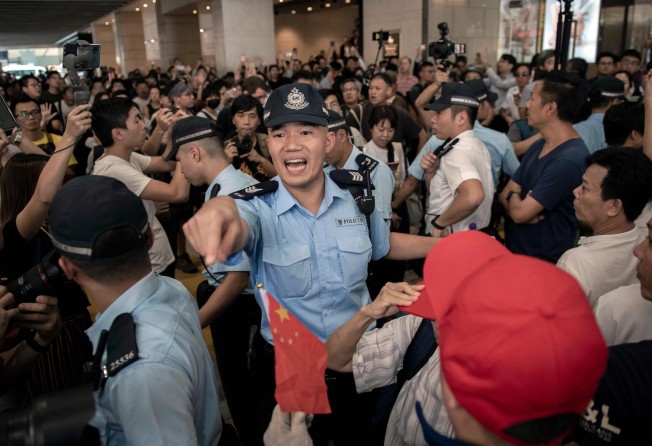An independent inquiry into Hong Kong police handling of the protests will bring justice – to the police
- Those who oppose the Independent Police Complaints Council investigating the protests do not doubt its legitimacy but rather its credibility
- Carrie Lam could consider adding more neutral members to the council or giving it legal power to summon witnesses

On September 7, relatives of Hong Kong police officers, accompanied by pro-establishment lawmakers, held a meeting with three government officials, expressing their strong opposition to an independent commission of inquiry into the protests, demanding the Education Bureau set up a committee to supervise teachers so that they remain politically neutral and that it install video and sound recording equipment in classrooms.
The first demand does society and the police force more harm than good. First, there is a great deal of agreement that an independent commission of inquiry is a means to resolve the ongoing social crisis. It has long been one of the five demands of the protesters, and Anthony Neoh, who heads the Independent Police Complaints Council (IPCC) does not oppose the idea.
Chief Executive Carrie Lam Cheng Yuet-ngor argued that the IPCC is the best body to investigate the matter, while dismissing public concern that the committee is mainly composed of pro-government figures.
We do not doubt the legitimacy of the body but its credibility. If relatives of police officers can question teachers’ professionalism in educating students from different family backgrounds, why can’t anti-government protesters doubt the neutrality of some of the pro-government IPCC members?
If people are worried that the IPCC may “lose face”, Lam can either add more credible members to the IPCC or empower it with statutory powers to summon the police officers against whom allegations have been made to testify themselves.
Apart from our “innocent until proven guilty” principle, fair investigation and objective evidence will do justice by everyone, including police officers. Much evidence is available on the internet showing that the police used excessive force; however, some say this footage “frames” the police.
I admit that the photographs and videos provided by both “camps” may only show part of the truth, but by taking all of them into consideration before judging, we would move closer to a fuller picture of the truth. If the police’s conscience is clear, they will be exonerated. Why not give “rioters” a slap in the face by not disagreeing with measures to increase the credibility of the IPCC?
R. Law, Tuen Mun